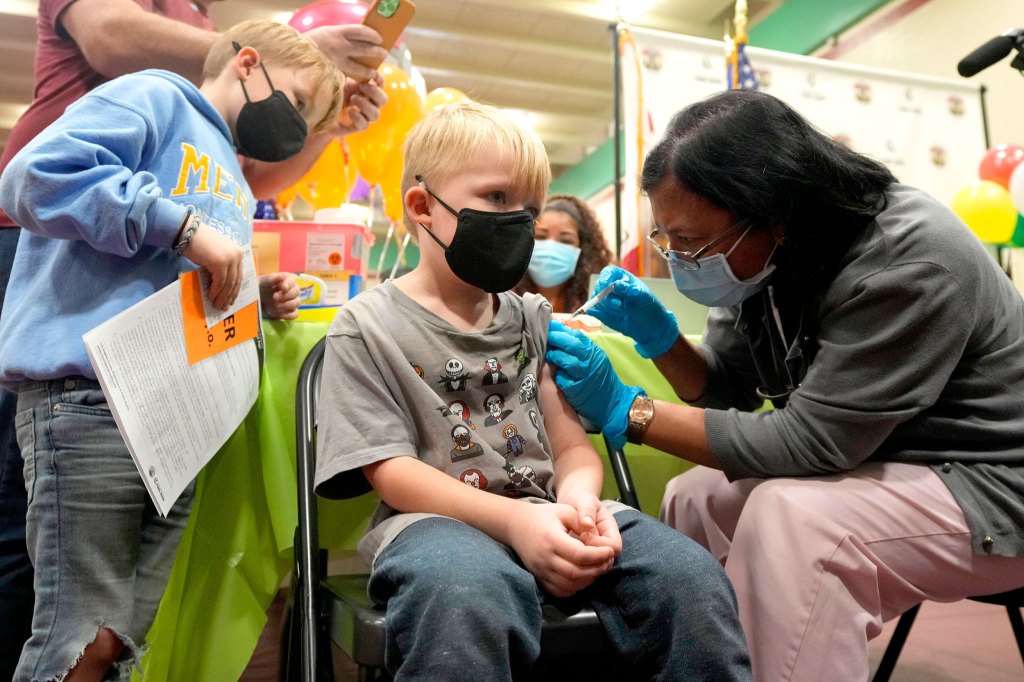The Coronavirus Update
-
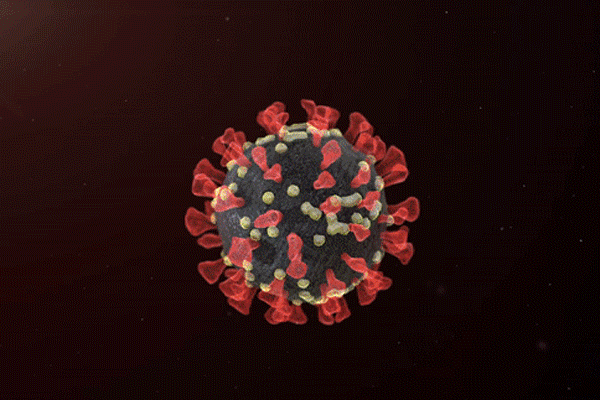 Science & Tech
Science & TechStaying ahead of virus mutations
EVEscape uses evolutionary and biological information to predict how a virus could change to escape the immune system.
-
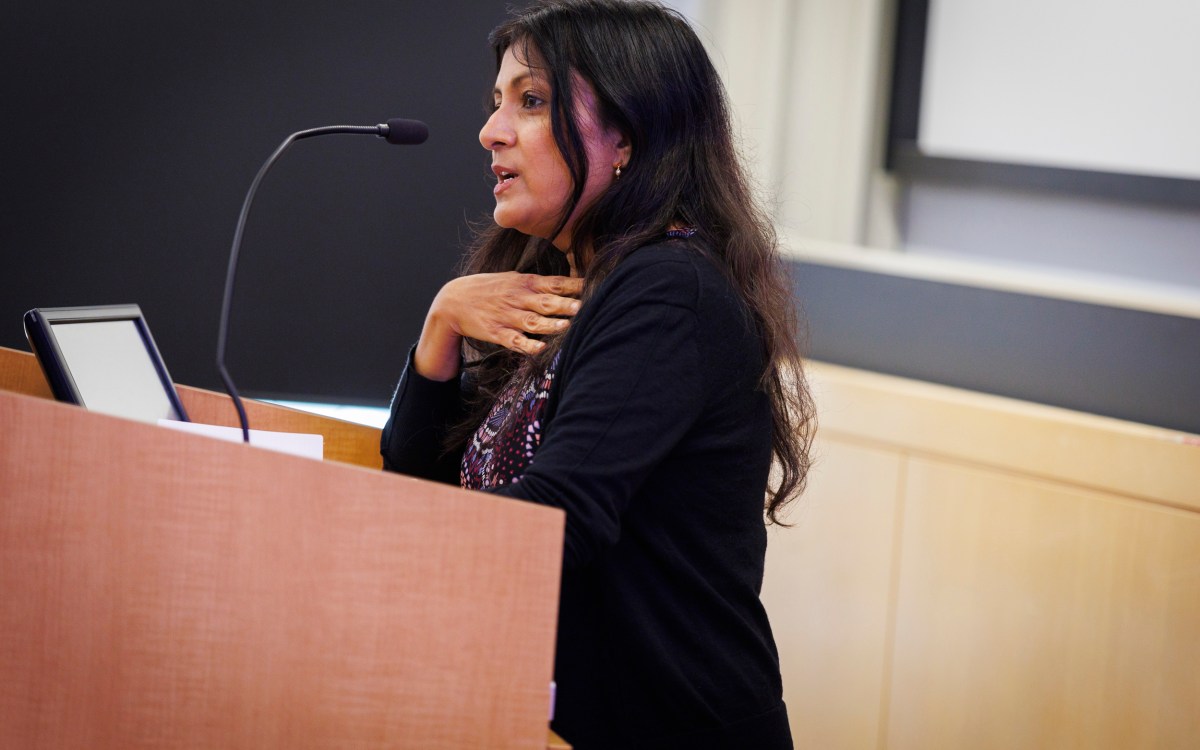 Nation & World
Nation & WorldHow federal missteps opened door to COVID misinformation
Anti-vaxxers, others benefited from mistrust engendered by early stumbles in messaging about virus, prevention, says New York Times health and science reporter Apoorva Mandavilli.
-
 Science & Tech
Science & TechA COVID cure worse than the disease?
Some worry a treatment that kills SARS-CoV-2 by helping it mutate could spawn a super virus. New research weighs in on its “evolutionary safety.”
-
 Health
HealthHow durable is your immunity?
William Hanage, an associate professor of epidemiology, talks about hybrid protection, vulnerability of older people, and the wisdom of Taylor Swift.
-
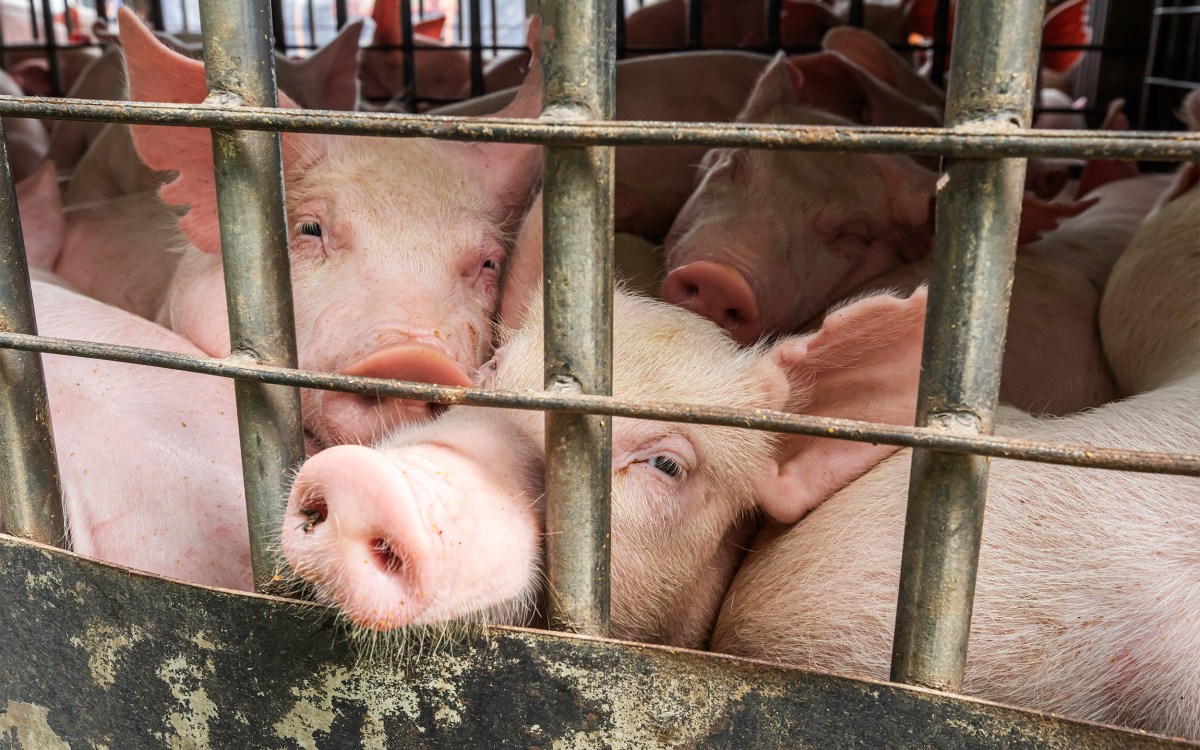 Health
HealthCOVID-19 came from animals. Why aren’t we working to prevent new scourge?
A new study suggests we are as vulnerable as ever to the emergence of another virus as deadly, or even more so, than COVID-19.
-
 Health
HealthDoctors not the only ones feeling burned out
Through a national survey, researchers identified prevalent work overload, burnout, and intent to leave health care professions among nurses, clinical staff, and non-clinical staff, including housekeeping, administrative staff, lab technicians, and food service workers.
-
Hints of a long COVID wave as Omicron fades
As Omicron fades, specialists seek answers for patients who can’t shake symptoms.

-
The COVID treatment that missed its target
“Monoclonal antibodies should first go to patients at the highest risk of death from COVID-19, but the opposite happened …, ” says a Harvard Chan School researcher.
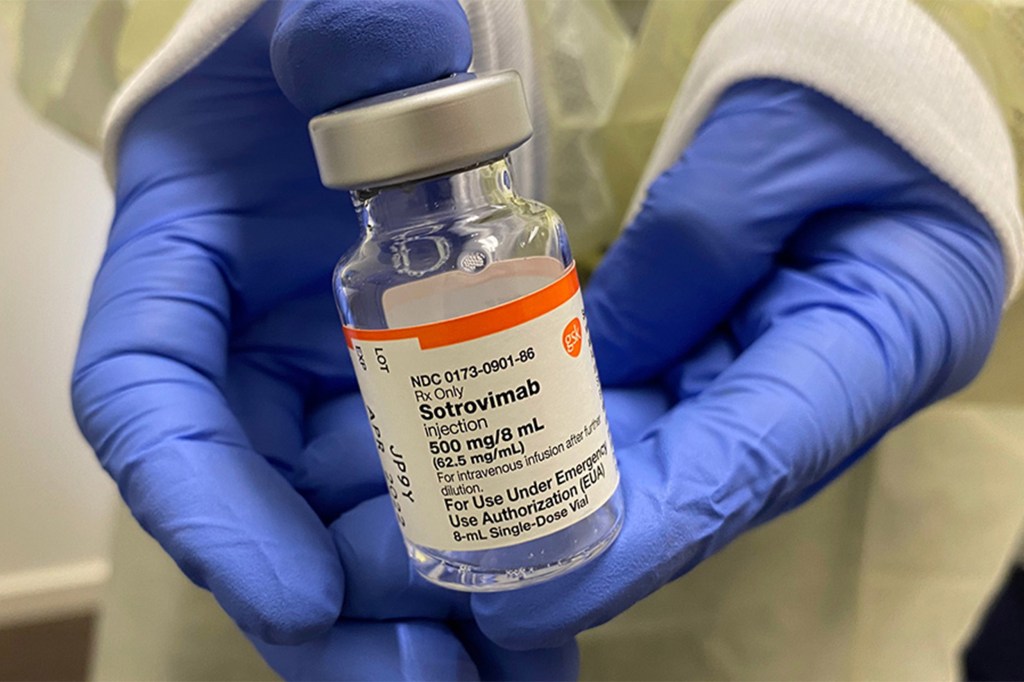
-
Is Omicron really ‘milder’? Not exactly.
The “milder” outcomes of Omicron are likely due to more population immunity rather than the virus’ properties, according to new research.
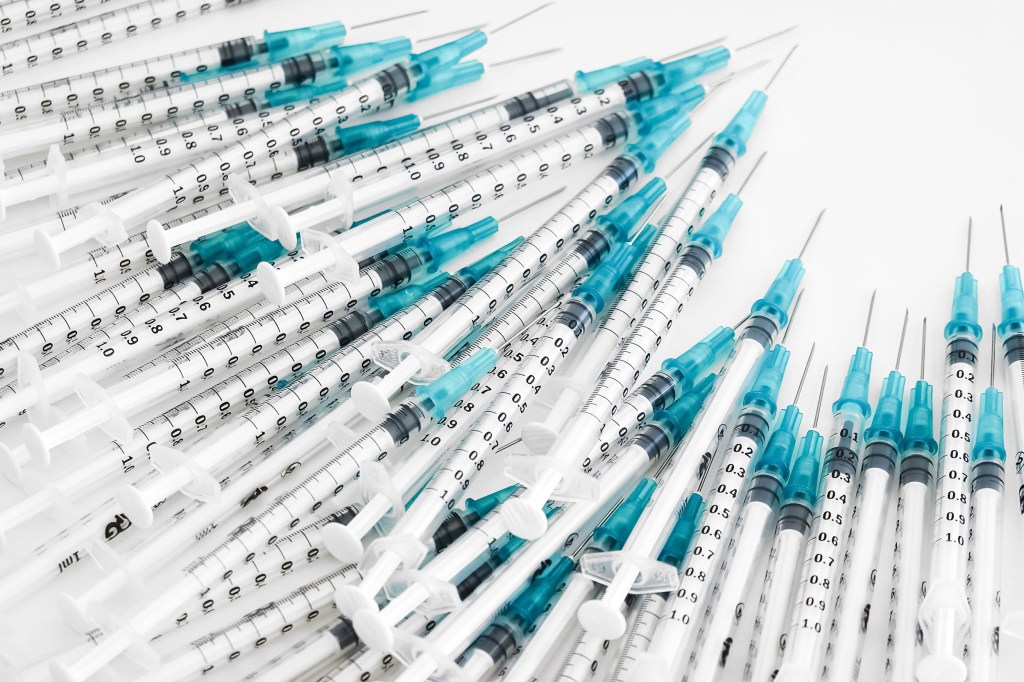
-
Willing but unable to get COVID shot
Mistrust of vaccine is high among people of color in U.S. and U.K., but unequal access appears to be greater barrier in U.S., researchers say.
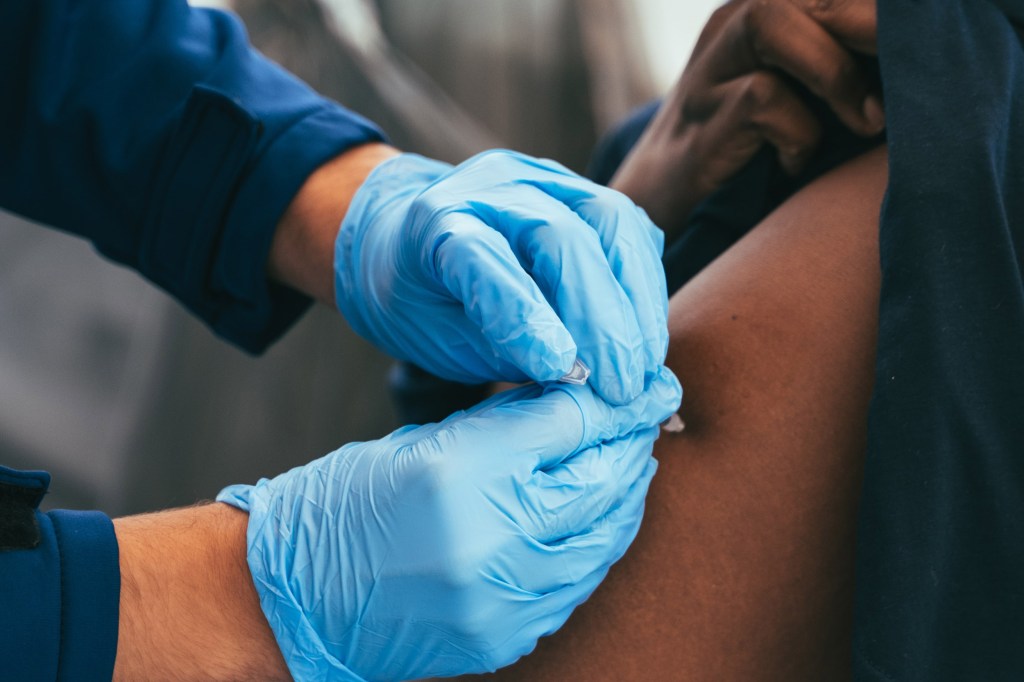
-
How the pandemic may affect baby’s brain
For babies born during this pandemic, a study published in JAMA Pediatrics suggests their brains may not fully develop.

-
Omicron optimism and shift from pandemic to endemic
With Omicron on the decline in some states, pandemic experts permit themselves hope, at least for the near term.
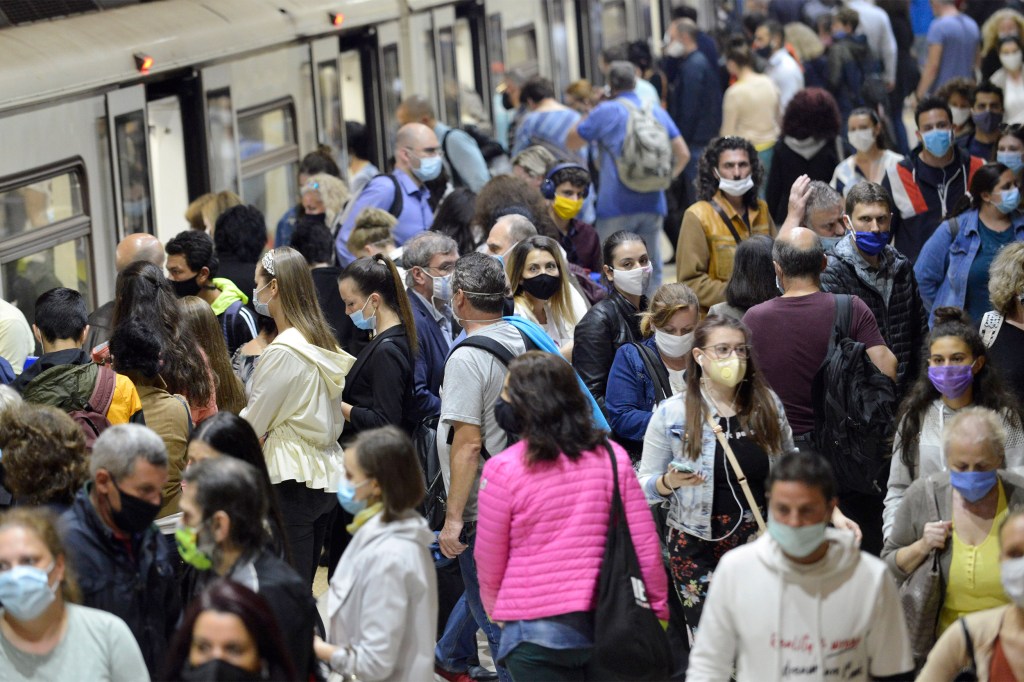
-
Why do more men die of COVID? It’s likely not what you think
Sex differences in COVID death rates vary by state and across time, suggesting social factors play a role.

-
Delta danger in pregnancy scrutinized
Researchers detect the COVID-19 variant in the blood and placentas of women who had stillbirths and pregnancy complications.

-
Harvard advisers on Omicron surge, shifting protocols
Leading experts offer insights as case numbers surge to record highs nationwide and new in-person semester nears.
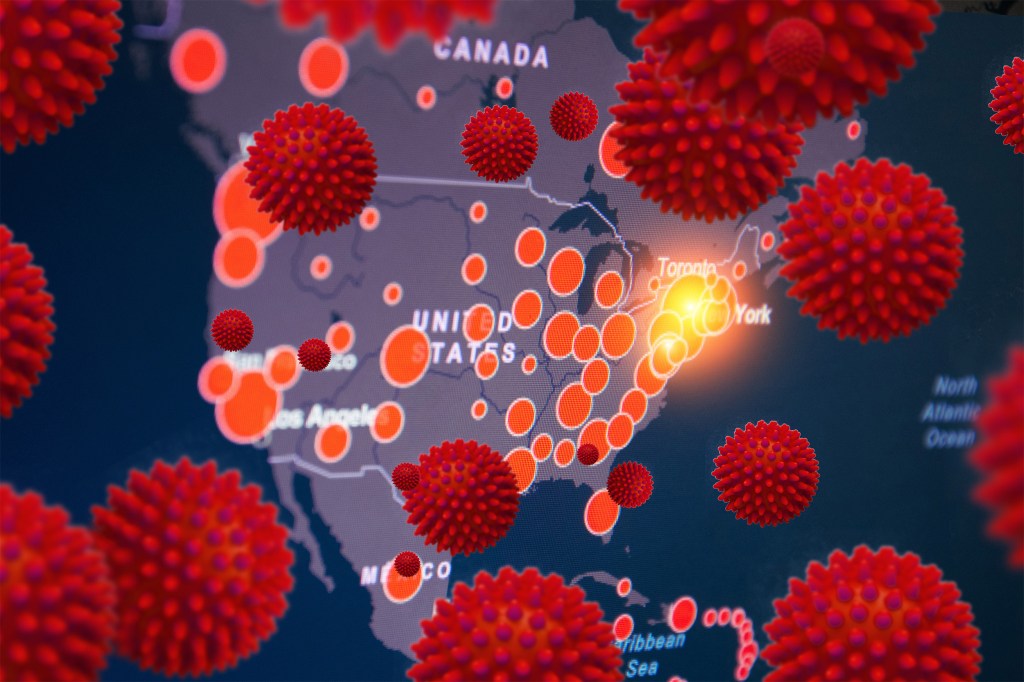
-
No Omicron immunity without booster, study finds
Traditional dosing regimens of COVID-19 vaccines available in the United States do not produce antibodies capable of recognizing and neutralizing the Omicron variant, reports a new study.
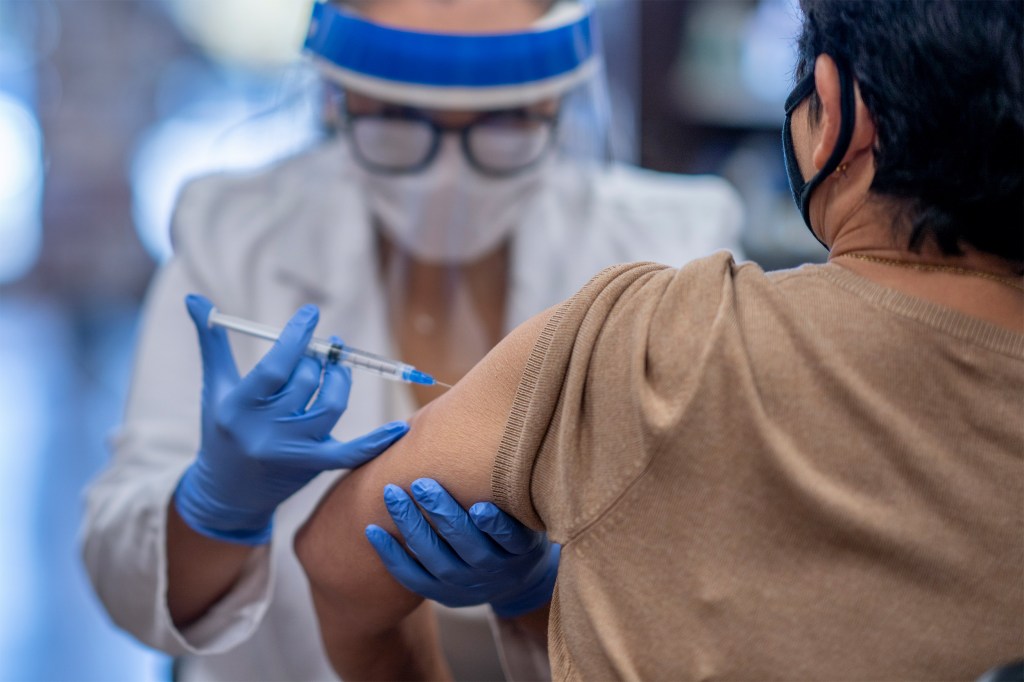
-
‘Schools should not close’
Harm to kids and families outweighs COVID risks, says Harvard Chan School expert Joe Allen.

-
Omicron could peak in U.S. fairly soon. Maybe.
Experts say fast-spreading, less severe profile of Omicron is emerging as cases drop in South Africa but warn of challenging weeks ahead.

-
Remdesivir-resistant COVID case sets off few alarms
Harvard Med specialist says cases of remdesivir-resistant disease seem rare, may not become big issue.

-
Fauci speaks to the perilous moment in Harvard Chan School lecture
At Harvard, Anthony Fauci outlined early Omicron findings and urged more robust efforts to bring the pandemic under control, including global vaccination.
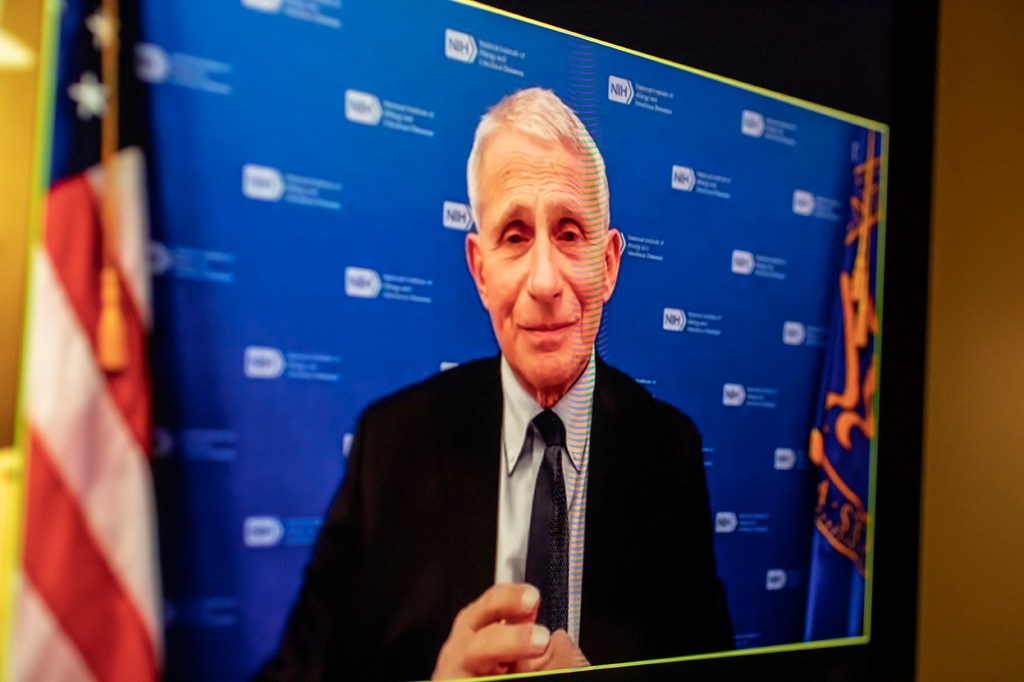
-
Scientists race to define Omicron threat, worried about ‘surge upon a surge’
Early findings on immune escape and transmissibility, combined with danger posed by Delta, heighten urgency of vaccination, testing, other safety measures.
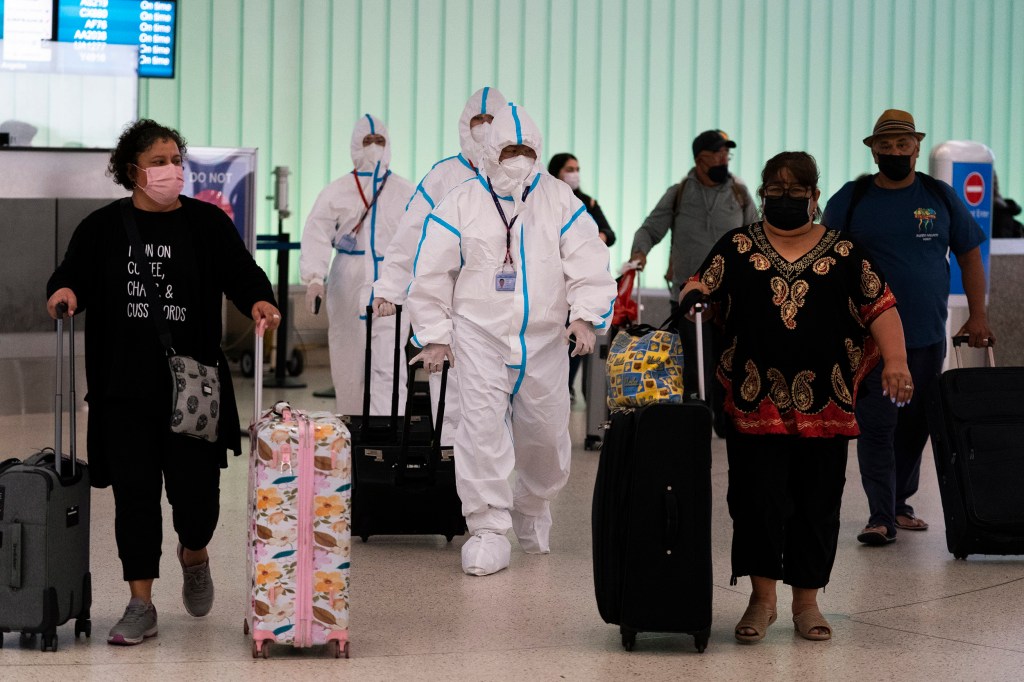
-
2 early vaccination surveys worse than worthless thanks to ‘big data paradox,’ analysts say
As governments and health officials navigate pandemic, researchers stress the danger that comes with bad information.

-
Time of day matters when getting vaccine
An observational study finds that antibody levels are higher when health care workers received the SARS-CoV-2 vaccine in the afternoon.

-
‘This virus is a shape-shifter’
A new study led by Harvard researchers models future SARS-CoV-2 mutations and forecasts their ability to evade immune defenses developed by vaccines and antibody-based treatments.
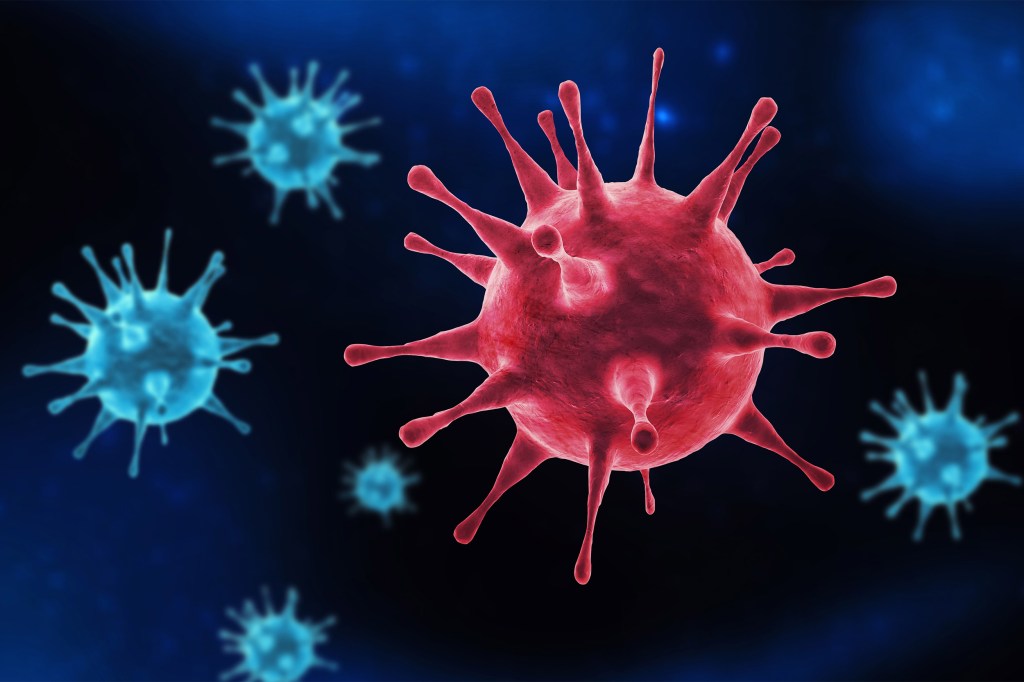
-
Omicron ‘astonishing to behold,’ says Hanage
With Omicron landing in the U.S. this week, Harvard epidemiologist William Hanage reviewed what we know and the many things still unknown about the fast-moving coronavirus variant.

-
Vaccine reduces transmission in breakthrough cases
Breakthrough COVID-19 cases in vaccinated people may be less likely to spread infection because virus is shed for a shorter period of time as opposed to infections in unvaccinated people.

-
Moderna edges out Pfizer vaccine in head-to-head comparison
In a comparison study, the Moderna vaccine was slightly more effective than the Pfizer vaccine in preventing COVID-19 infection, hospitalization, and death.
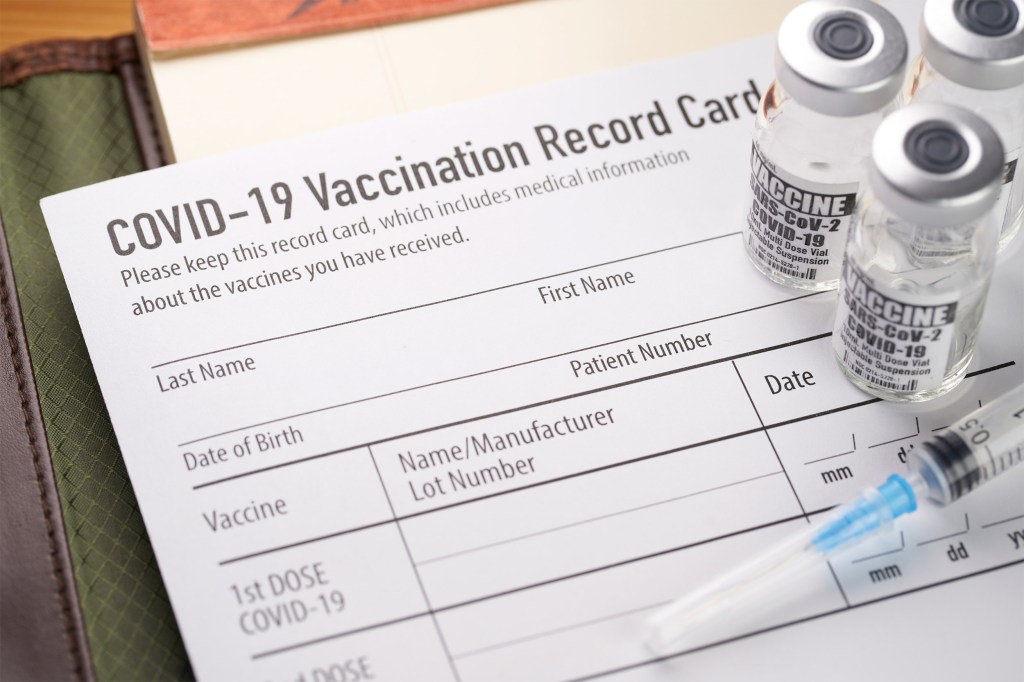
-
How Omicron variant could affect University protocols
Harvard professors and advisory group members detail where things stand and where they might go.

-
Keeping an eye on Omicron
Mary Bushman, a research fellow in the Department of Epidemiology at Harvard Chan School, co-authored a recent paper that modeled variant threats.

-
Breaking down boosters
A Harvard expert shares insight on the science and history of vaccine boosters and why we need them, speculating on a future that includes periodic COVID boosters.
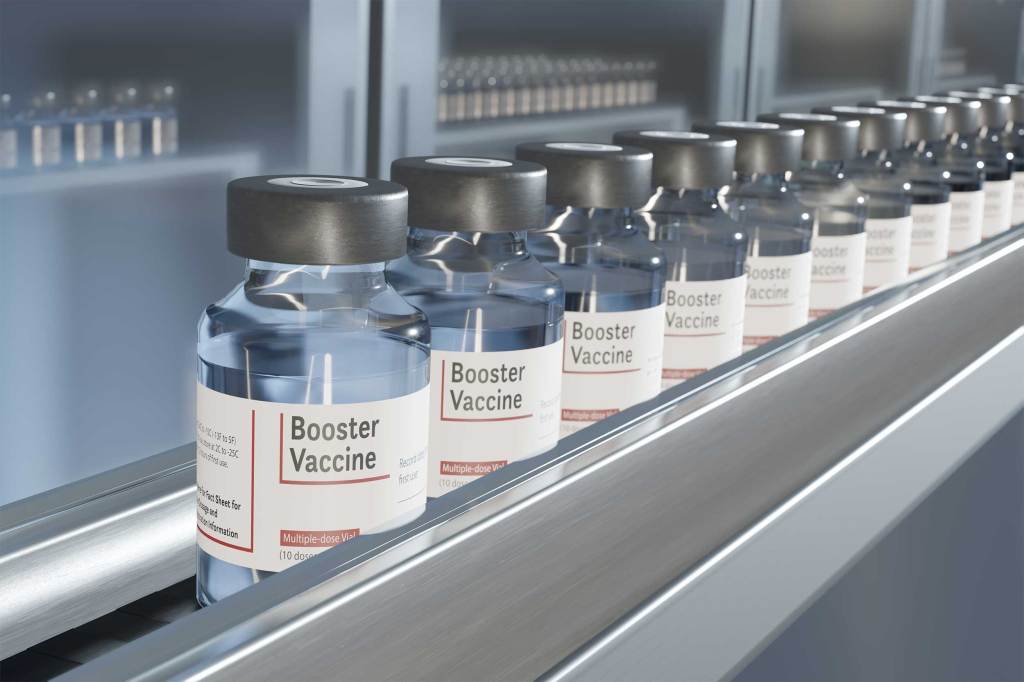
-
Long COVID sufferers face physical pain, physician skepticism
Long COVID’s laundry list of ills include skepticism and doubt often conveyed in the doctors’ office.
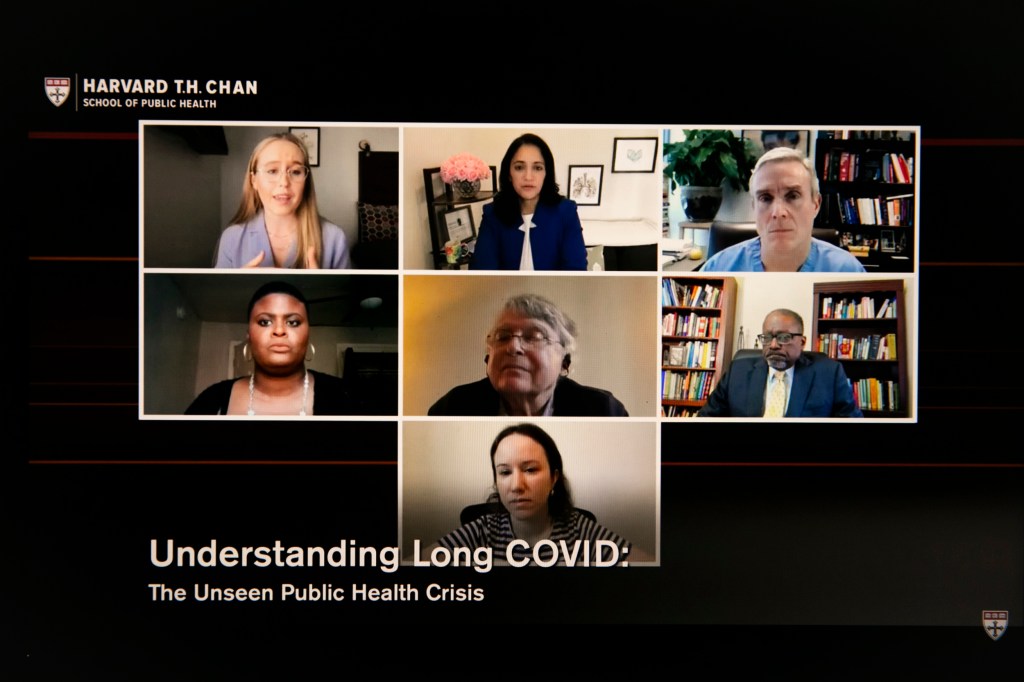
-
Repurposing a familiar drug for COVID-19
New research points to a well-known and widely available drug called disulfiram (marketed as Antabuse) as a possible treatment for COVID-19.

-
Pills could prove COVID game changer
Harvard specialists say COVID-19 pills may cut hospitalizations and deaths and offer big boost to nations struggling with low vaccination rates.
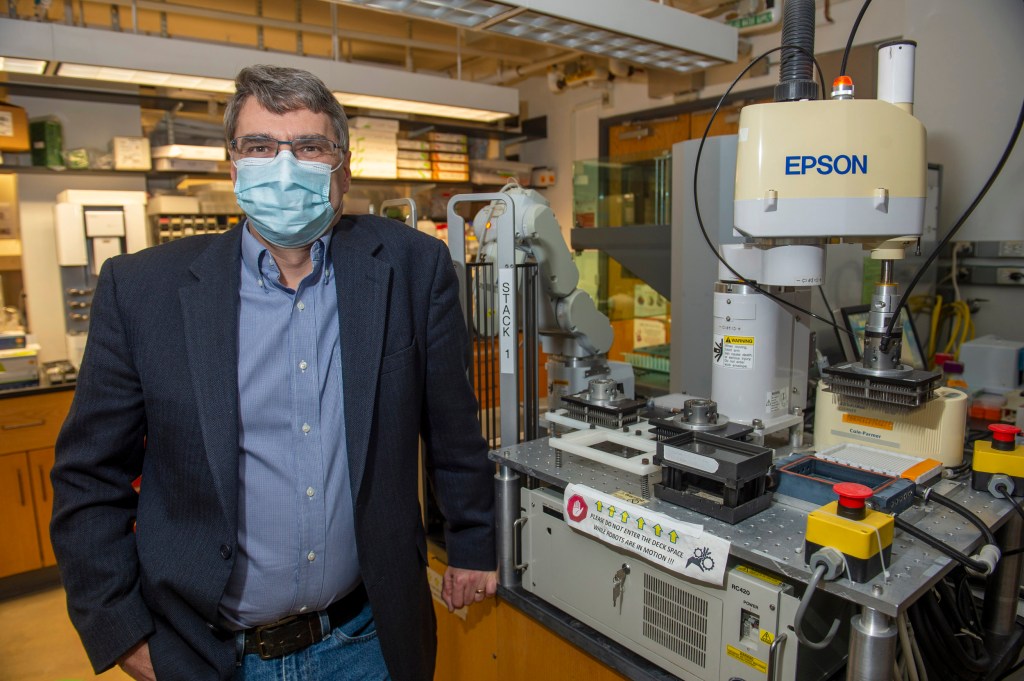
-
Potential fixes for COVID-related GI issues
A human Intestine Chip has helped identify drugs that can target GI symptoms associated with both the common cold and SARS-CoV-2 virus infections.

-
Vaccine side effects or a doctor carrying COVID?
A new decision-support tool helped preserve the health care workforce by distinguishing symptoms associated with COVID-19 vaccinations from symptoms of the virus itself.
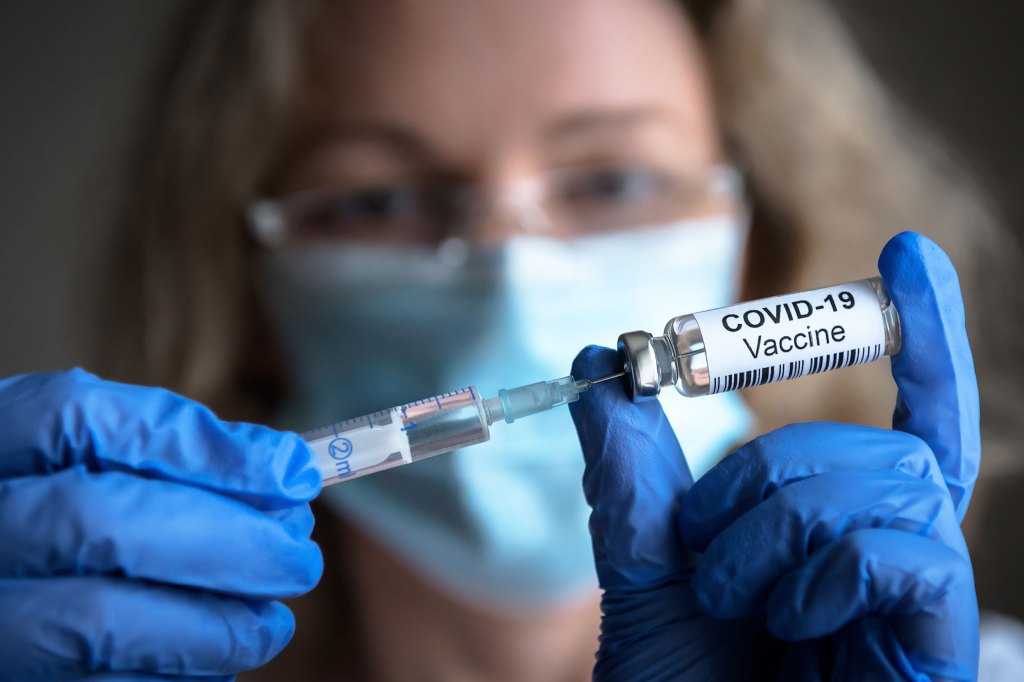
-
Wondering about COVID-19 vaccines for kids 5 to 11?
Pediatric infectious disease specialist Kristin Moffitt offers parents insight on recently approved COVID-19 vaccines for children ages 5 to 11.
